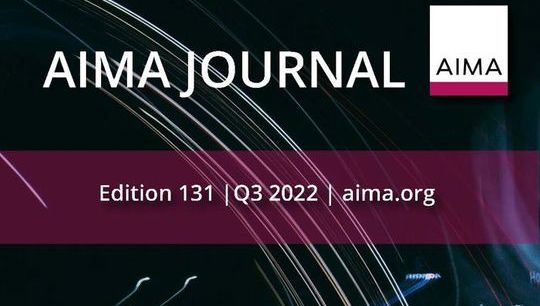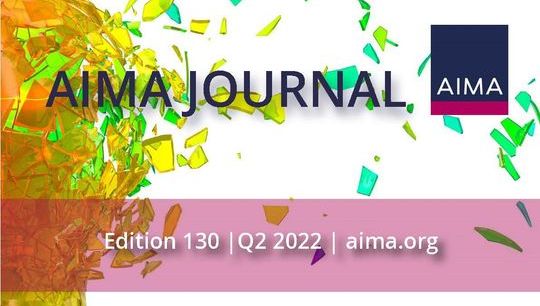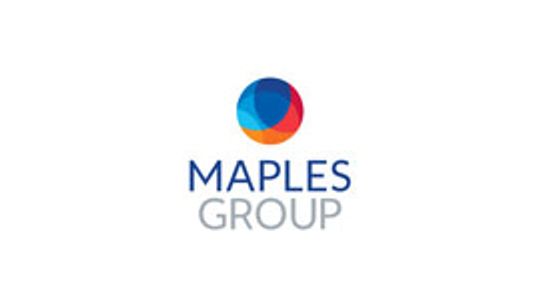As the Cayman Islands expands the scope of its economic substance regime to partnerships and the CRS compliance form due date has been and gone: What does it mean for you?
By Christopher Capewell; Anthony Mourginos, Maples Group (Cayman Islands)
Published: 20 September 2021
Changes to the Cayman Islands Economic Substance Regime
From 30 June 2021 the Cayman Islands economic substance regime has been extended to include partnerships established in the Cayman Islands as well as foreign partnerships registered in the Cayman Islands. What does this change mean for Cayman Islands partnerships and what must asset managers be aware of when seeking to comply?
The Cayman Islands is a member of the OECD Inclusive Framework on Base Erosion and Profit Shifting (BEPS) and, along with all OECD-compliant jurisdictions with no or nominal tax, enacted economic substance legislation on 1 January 2019 in response to OECD BEPS requirements. The International Tax Co-operation (Economic Substance) (Amendment of Schedule) Regulations, 2021 (the 2021 Amendment) came into force on 30 June 2021 and amended the Schedule to the International Tax Co-operation (Economic Substance) Act (the ES Act) to bring Cayman Islands general partnerships and exempted limited partnerships as well as foreign limited partnerships that are registered in the Cayman Islands within scope of the ES Act.
How has the ES Act changed?
The definition of 'entity' and 'relevant entity' have now been expanded to include a partnership under the Partnership Act (2013 Revision), an exempted limited partnership as defined under the Exempted Limited Partnership Act (2021 Revision (ELP Law) and a foreign limited partnership registered under the ELP Law. Conversely, a new specific carve-out from the definition of relevant entity has been included for 'local partnerships', i.e. a partnership that is, among other things, not part of a multinational enterprise group, is only carrying on business in the Cayman Islands in compliance with and licensed under the Trade and Business Licensing Act. Importantly, if a partnership qualifies as either an 'investment fund' or is 'tax resident outside the Cayman Islands' the normal rules apply and such entity will not be regarded as a relevant entity.
The 2021 Amendment also includes revisions to the definitions of 'ultimate beneficial owner', to include general partnerships, exempted limited partnerships, foreign limited partnerships and limited liability partnerships.
Transitional provisions in the 2021 Amendment broadly provide that a partnership formed on or after 30 June 2021 will need to satisfy the Economic Substance Test (ES Test) from the date it starts carrying out a relevant activity. Partnerships already in existence prior to 30 June 2021, will not need to start satisfying the ES Test until 1 January 2022 onwards.
What do you have to do?
The broad effect of the 2021 Amendment is that all partnerships established or registered in the Cayman Islands and foreign limited partnerships registered under the ELP Law will be required to file an Economic Substance Notification (ES Notification) and, where such partnership conducts a relevant activity and falls within the definition of a 'relevant entity' it will be required to satisfy the ES Test and file an Economic Substance Return (ES Return) with the Cayman Islands Department for International Tax Cooperation (DITC).
Against this backdrop, for asset managers, the expectation is that the majority of their Cayman Islands registered partnerships will qualify as 'investment funds' under the ES Act[1] and will not need to take any steps beyond filing an annual ES Notification. However, partnerships that are conducting a relevant activity (in particular those carrying out 'fund management business' or 'holding company business') will as a result of the 2021 Amendment now be subject to the ES Test and have to satisfy full economic substance requirements and reporting obligations. For those partnerships registered with the Cayman Islands Monetary Authority (CIMA) pursuant to the Securities Investment Business Act (2020 Revision) (SIBA) that are conducting fund management business, expect ongoing and closer scrutiny from the DITC and also by CIMA (e.g. by way of an onsite inspection).
It is important to remember that the DITC has the power to assess a relevant entity that is required to satisfy the ES Test for a particular financial year. Such an assessment can be made within six years of the end of that financial year or, in the event of any misrepresentation, bad faith or fraud, an unlimited period. A failure to satisfy the ES Test attracts discretionary financial penalties (up to US$12,196 for the first year and US$121,952 in the subsequent financial year if the prior failure has not been remedied) and the power to require the relevant Cayman Islands Registrar to strike off the entity.
CRS Compliance Form due 15 September 2021
The CRS Compliance Form must have been completed and lodged through the DITC portal by no later than 15 September 2021. The scope of the form was expansive and went beyond CRS alone.
How is this relevant to you?
In April 2020, the Tax Information Authority (International Tax Compliance) (Common Reporting Standard) (Amendment) Regulations, 2020 came into force pursuant to which all reporting Financial Institutions (FIs) that maintain Financial Accounts and Trustee Documented Trusts are now required to provide additional information annually (through the CRS Compliance Form) to the DITC. The only exception to completing the CRS Compliance Form is where a FI has indicated that it is an investment manager or adviser that has no financial accounts.
The CRS Compliance Form is a component that has come out of the Cayman Islands' on-going OECD Global Forum's AEOI Peer Reviews, to ensure data collection, analysis, and effective implementation of the CRS. The implementation of the new CRS Compliance Form is designed to ensure that these factors are addressed so that the Cayman Islands can demonstrate effective implementation of CRS locally. The CRS Compliance Form will be used as a risk management tool to assign risk profiles to FIs based on the additional information obtained, which will also allow a targeted audit selection.
In particular, the CRS Compliance Form collects data on each FI's non-reportable accounts, requires FIs to confirm the nature of their business, whether or not they are regulated by CIMA, whether they have prepared audited financial statements, whether they are subject to the Cayman Islands anti-money laundering regulations and details of any service providers engaged by the FI to assist it with its CRS compliance obligations. The form also reaffirms the need for an FI to prepare and implement written CRS compliant policies and procedures (the form asks for confirmation that such policies and procedures are established, maintained and implemented) and asks for confirmation that the FI complies with such policies and procedures. The FI is also asked to confirm it has complied with the requirements of Regulation 7(3) of the CRS Regulations, which deems a FI to have contravened its policies and procedures relating to self-certification where it knows (or has reason to believe) a document is inaccurate in a material way and files a CRS Return that relies on that document's accuracy.
What did you have to do?
The CRS Compliance Form must have been completed and lodged through the DITC portal no later than 15 September 2021. As this was the first time that the CRS Compliance Form needed to be filed, the deadline for this year applied to both the 2019 and 2020 reporting years. For asset managers, the expectation is that the majority of their Cayman Islands registered entities will have qualified as Reporting Financial Institutions and therefore should have completed and submitted the CRS Compliance Form. The form did not need to be completed for any entities that have been classified as non-Financial Institutions (commonly referred to as NFEs) or where such entity does not have any Financial Accounts on the basis it is an investment manager or advisor.
Where an FI has failed to submit the CRS Compliance Form by the 15 September deadline, this is a breach of the CRS Regulations and an automatic administrative penalty may be issued by the DITC to such entity.
It should be remembered that the CRS Compliance Form is a new annual requirement, and so will need to be prepared and submitted again, with respect to the 2021 reporting years, by no later than 15 September 2022.
[1] An "investment fund" is an entity whose principal business is the issuing of investment interests to raise funds or pool investor funds with the aim of enabling a holder of such an investment interest to benefit from the profits or gains from the entity's acquisition, holding, management or disposal of investments and includes any entity through which an investment fund directly or indirectly invests or operates (but not an entity that is itself the ultimate investment held), but does not include a person licensed under the Banks and Trust Companies Act or the Insurance Act, or a person registered under the Building Societies Act or the Friendly Societies Act.










